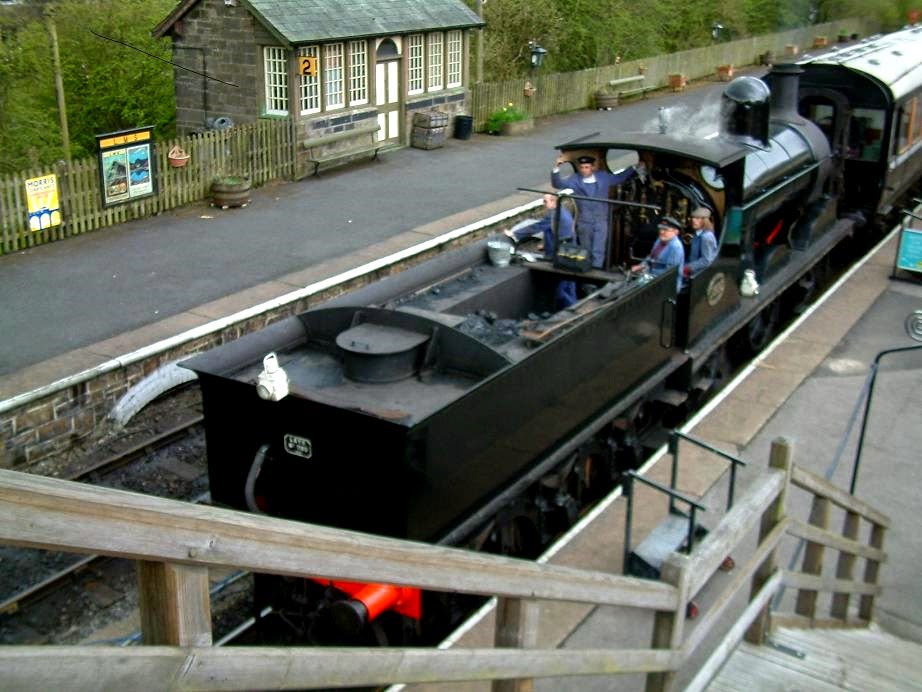Seen here at Embsay station on the Embsay Bolton
Abbey Line.
The Lancashire and Yorkshire Railway Class 27 is a class of 0-6-0 steam locomotive designed for freight work on the Lancashire and Yorkshire Railway (L&YR).
Class 27 locomotives were designed by John Aspinall and 484 were built between 1889 - 1918 at Horwich Works.
More were built under Aspinall's successors, Henry Hoy and George Hughes, albeit with some modifications. By 1918 there were the 484 locomotives in the class.
Under Hughes, one of the class was subject to early experiments in superheating, the process of increasing the temperature of steam produced in the boiler so the minimum of energy was lost. After months of trials, 20 superheated engines were authorised to be built and the first of the superheated class 27s emerged from Horwich Works in 1909. The superheated 27s had the same boiler pressure as the originals, 180 psi. The first batch had round topped boilers, but in 1912 a second batch of 20 was constructed with Belpaire fireboxes.
| Builder | L&YR, Horwich Works |
|---|---|
| Build date | 1889–1918 |
| Total produced | 484 |
| Specifications | |
| Configuration | 0-6-0 |
| Gauge | 4 ft 8 1⁄2 in (1,435 mm) |
| Wheel diameter | 5 ft 1 in (1.549 m) |
| Length | 48 ft 6 in (14.78 m) |
| Locomotive weight | 42 long tons 11 cwt (95,300 lb or 43.2 t) |
| Locomotive and tender combined weight | 69 long tons 3 cwt (154,900 lb or 70.3 t) |
| Fuel type | Coal |
| Boiler pressure | 180 psi (1.24 MPa) |
| Cylinders | Two, inside |
| Cylinder size | 18 in × 26 in (457 mm × 660 mm) |
| Valve gear | Joy valve gear |
| Performance figures | |
| Tractive effort | 21,130 lbf (94.0 kN) |
| Locomotive brake | Vacuum |
| Train brake same | |






No comments:
Post a Comment